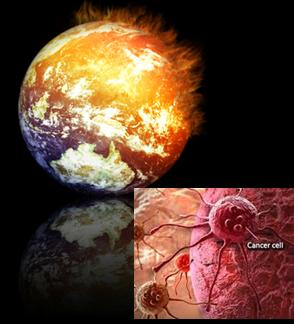 I credit a recent Double Take Video from New England Journal of Medicine for inspiring this article on the holiday season. The instructional video focuses on Climate, Pollution, and Children’s Health. In about seven minutes, it eloquently highlights five key ways in which climate change causes a long-lasting negative impact on children’s well-being. I highly recommend everyone to watch it – a link is here.
I credit a recent Double Take Video from New England Journal of Medicine for inspiring this article on the holiday season. The instructional video focuses on Climate, Pollution, and Children’s Health. In about seven minutes, it eloquently highlights five key ways in which climate change causes a long-lasting negative impact on children’s well-being. I highly recommend everyone to watch it – a link is here.
When we face the reality of climate change, we realize that it has severe implications for human and planetary health, and certainly is a threat to children’s vulnerabilities. A growing body of research has shown that climate change has detrimental effects on children’s health through multiple pathways. So most unfortunately, climate change will have adverse impacts on children born today throughout their lifetime—their nutrition, health, education, and life.
Children are not little adults. They are at a higher risk for health hazards because of various reasons, including but not limited to
- The way their bodies metabolize toxins during development,
- The physiological fact that they breathe, eat, and drink more, relative to their body mass (or on a per pound basis), than adults do,
- Their having less developed natural defenses (from skin and the blood-brain barrier to system and organ functions),
- Thermoregulation – that is, they regulate their body temperature differently from adults,
- Unique activity patterns and behaviors.
Understandably, children at varying developmental stages also respond differently to environmental extremes and stressors such as air pollution, UV exposure, increased frequency and severity of heat waves, and contaminated food or water.
Previously, I’ve talked about why the climate crisis is a health crisis and how climate change can impact cancer risk, and I’ve shared some ideas for taking “greener” actions combined with lifestyle modification on a daily basis. Now, let’s give extra attention to children.
As the global climate crisis intensifies, children are likely to bear the consequences of negative impacts over their life course if we don’t take action now. Worth mentioning is that disadvantaged children suffer from a disproportionally high and unjust health burden from climate change. As a result, the long-term impact of multiple physical and psychosocial stressors on children’s health may endanger their future.
Key Takeaway Point
Climate change is a critical and huge problem. It cannot be solved by any one person. However, the solution can be achieved by collective efforts—from policy levels and organizational involvement to the practices of each of us. To this end …
This holiday, I’m giving my voice as a gift to this vulnerable population—not only my children but also all children in the world—for an important endeavor and a lasting purpose, in order to meet the challenge of climate crisis.
Please join me in taking action in whatever way you can and, consequently, promoting a harmony on earth where the coming generations can enjoy their holidays like us and, more importantly, for their long-term well-being.

